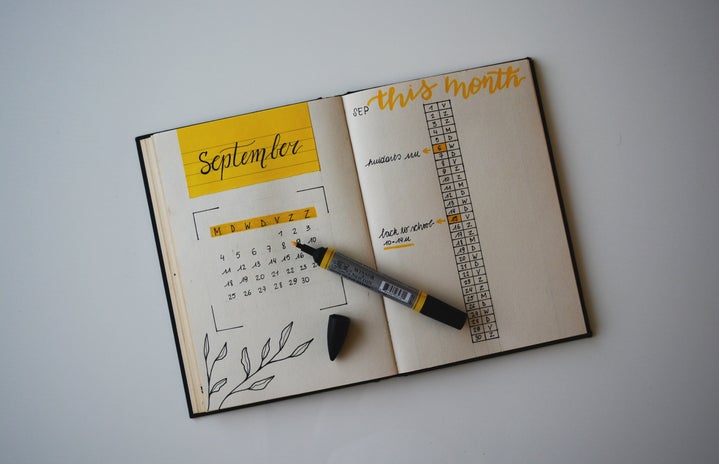You’ve likely seen a myriad of TikTok guides with the title: “How to romanticize school!” They’re accompanied with cozy pictures of Rory Gilmore, or Hermione Granger, curled up with a book in their hand, looking both effortlessly beautiful and completely taken with their work. You’re told that to be them is the ideal. That you must dress and act the part: have fun school supplies, dress preppy, make a routine, study for hours on end, and somehow enjoy it.
Many publications even encourage us to do so, offering guides that corroborate these TikToks:
The proliferation of romanticizing school proves that it must, in some ways, be beneficial; if not, it could never become such a popular practice.
For some, it is the perfect formula for getting their work done and helps them feel more accomplished whilst ameliorating the prospect of doing the work itself. Studying can thus become a fun activity.
The problem, however, is when the threshold between fun and validation is crossed; when romanticizing studying becomes a route for academic validation, rather than a way to derive pleasure from academia, issues begin to arise.
In championing characters like Hermione and Rory, both of whom have evidently problematic relationships with academic validation, we suggest that, like their fictionalized counterparts, students too, should equate self-worth with academic performance.
First, this sets unrealistic standards of productivity. Real students, taking fiction as suggestion, turn people like Hermione Granger into reality. Take, for example, self-proclaimed “study-tuber” Ruby Granger: https://youtu.be/Wos3Ril3EZU?si=wWLnIOyYYoX8rseg
Ruby promotes uber-productivity, presented in a charming and quaint setting. And while it is enjoyable to watch, Ruby’s productivity is certainly hard to replicate.
Whilst there is nothing wrong with what Ruby does, the issue lies in the way the audience may interact with her content. We may be encouraged to view Ruby’s devotion to studying as an inspirational ideal that we should work towards mirroring. However, this level of academic overcommitment is not feasible or sustainable for most people.
This image of productivity is an overly curated one, rooted in a fictitious and extreme ideology. When impressionable students are told to imitate this, it has damaging consequences.
The subsequent mental and even physical health impacts that romanticizing school perpetuates are masqueraded by the harmless intentions that it sets out with.
To fully understand the damage it may cause, we should liken it to unrealistic beauty standards, and the societal anguish that this causes. Unrealistic academic and productivity standards pressure students to compare themselves both to fictional characters, and hyper-curated influencers.
When students fail to reach academic perfection and struggle to keep up with over-commitment, seeing as they lack Hermione’s magic time turner, they may feel discouraged with themselves, creating a counterproductive response on their mental health (as a byproduct of stress) and physical health (as a byproduct of the physical effort and willpower of studying).
As a Uni student, I have certainly felt these pressures. With the frequency of “productive day in my life” videos circulating around TikTok, I believe it is natural to feel somewhat inadequate when comparing yourself.
So what can you do if you like the idea of romanticizing school in theory, but fear the downsides of it in practice?
Romanticizing school in moderation is key. Rather than using and idolizing other people as inspiration, I tend to focus on being the best version of myself. This involves prioritizing my own well-being in addition to my studying.
It is crucial to remember that academic success cannot occur when either your mental or physical well-being is compromised. Because of this, I always make balance a priority.
I’ll still get those aesthetically pleasing school supplies, and maybe even make a little TikTok of my library study session, but I try my best to do it mindfully!


